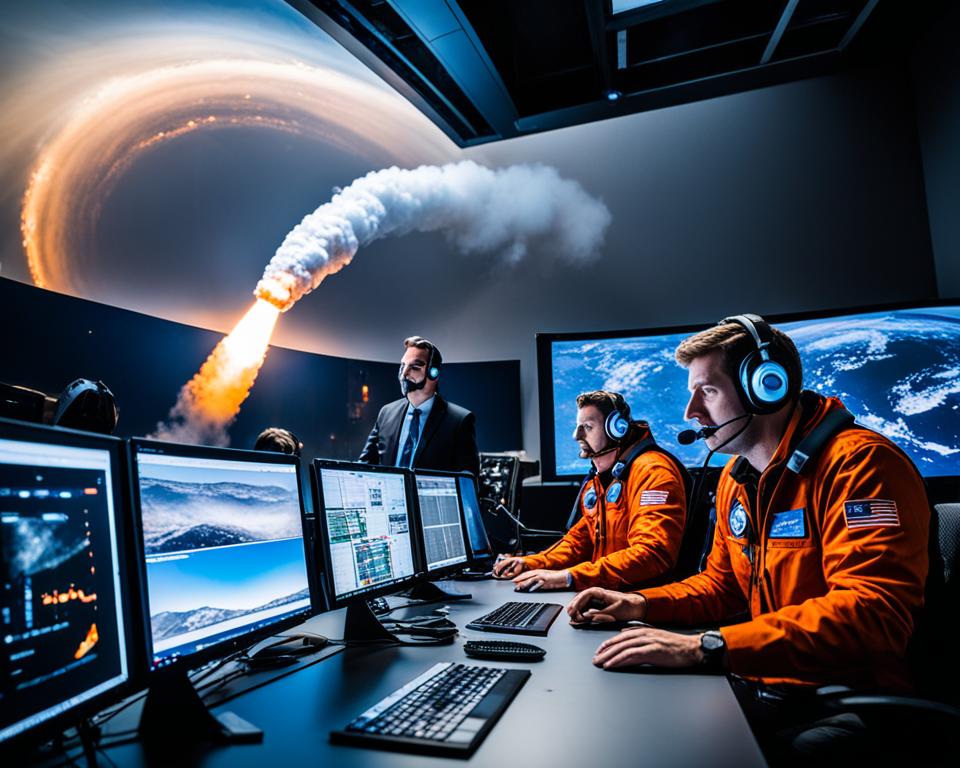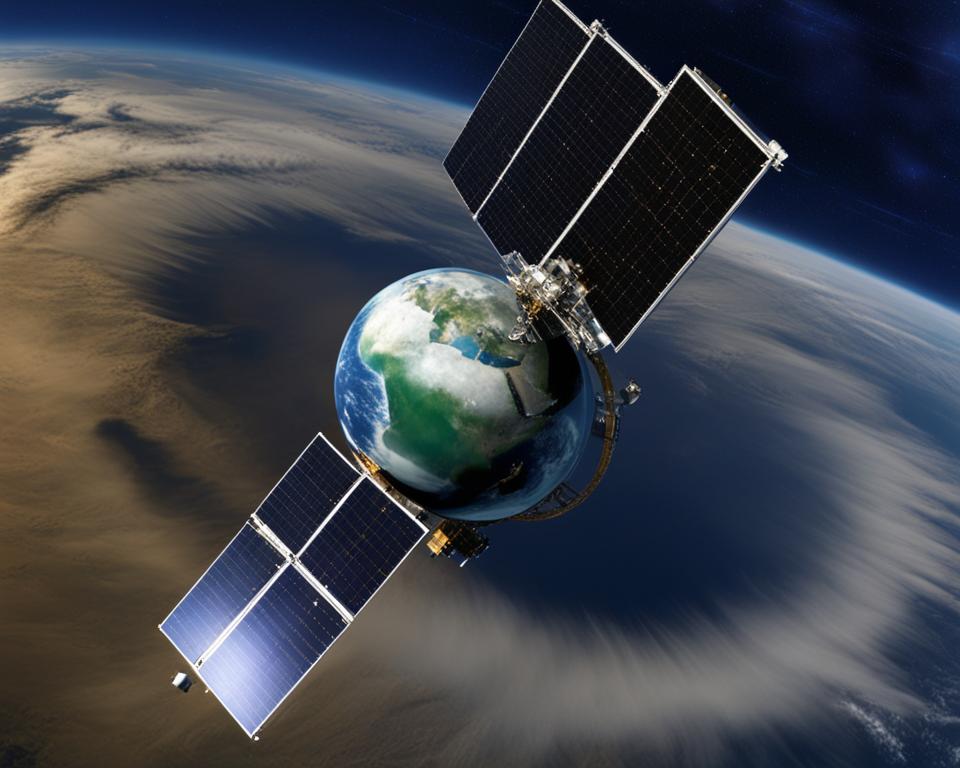Adverts
A career in space engineering offers several opportunities and perspectives for action. The aerospace engineering course is one of the main training courses for entering this promising field. In Brazil, there are renowned universities and institutions that offer the course, such as the Instituto Tecnológico de Aeronáutica (ITA) and the Universidade Federal de Santa Maria (UFSM). In addition, the job market for professionals with degrees in space engineering is growing, with demands in sectors such as industry, agribusiness, space sector agencies and Defense. This is an area that offers opportunities for research and development of innovative projects, contributing to the advancement of space autonomy in Brazil.
Adverts
Main points covered in this section:
- Aerospace engineering course
- Opportunities for action in the area
- Job market in space engineering
Aerospace Engineering: Course and Career Opportunities
O Bachelor's degree course in Aerospace Engineering is a promising choice for those who wish to work in the space field. With an average duration of five years, this training covers subjects that are essential for understanding and developing aerospace projects.
In the first two years, students have access to basic science subjects such as physics, chemistry, mathematics and computing. This solid foundation allows them to build fundamental knowledge for their areas of activity in the space sector.
Adverts
In the last three years, the focus has been on more specific subjects in aerospace engineering. Students acquire knowledge in disciplines such as propulsion, structural mechanics, materials, control, telecommunications, aerodynamics, and many others. This multidisciplinary training prepares aerospace engineers to face the technical and innovative challenges of the field, enabling them to design, control and test aerospace systems.
In addition to theoretical subjects, the course also offers students the opportunity to put what they have learned into practice through extracurricular activities, internships and research projects. These experiences enrich learning, enabling the development of practical skills and the consolidation of knowledge acquired throughout the course.
The training in aerospace engineering provides a wide range of possibilities of action in the space area. Below, we highlight some areas of activity:
- Space vehicle design and development
- Control and optimization of aerospace systems
- Research and development of new materials and technologies
- Operation and maintenance of space equipment
- Analysis and simulation of space missions
In addition, professionals trained in aerospace engineering also have opportunities to act in educational and research institutions, universities, government agencies and aerospace companies.
Example of occurrence of the term “aerospace engineering” in the table:
See too:
| Aerospace Engineering Course Subjects | Possibilities for working in the space sector |
|---|---|
| Physical | Space vehicle design and development |
| Chemical | Research and development of new materials and technologies |
| Mathematics | Analysis and simulation of space missions |
| Computing | Control and optimization of aerospace systems |
Job Market in Space Engineering
O job market in space engineering is constantly growing in Brazil, presenting promising opportunities for qualified professionals. With the increase in investment in space technologies, companies and agencies in the space sector are increasingly demanding specialized professionals. Furthermore, the space area is not limited to companies in the sector, offering opportunities in several areas, such as industry, agribusiness and Defense.
The demand for space engineers is related to the expansion of space sector in Brazil. The country has been investing in programs and projects that drive research and development in the area, resulting in the need for qualified professionals to work in this field. With the advancement of aerospace technologies, the search for professionals capable of contributing to the development of innovative projects and solving complex challenges is also growing.
In the Brazilian space sector, there are job opportunities in public and private companies, research institutions and universities. Professionals can work in areas such as:
- Design and development of satellites and rockets;
- Control and monitoring of space missions;
- Navigation and communication systems;
- Research and development of space technologies;
- Optimization of aerospace processes and systems.
Multidisciplinarity is an important characteristic for professionals in space engineering. In addition to technical knowledge in the field, skills such as teamwork, complex problem-solving and analytical thinking are essential for career success. In addition, the ability to adapt to constant changes and technological updates is essential.
With the expansion of the job market in space engineering In Brazil, professionals have the opportunity to contribute to the growth and development of the national space sector, as well as participate in innovative projects that directly impact society. The market offers prospects for professional growth and a challenging and stimulating environment for those who wish to pursue this fascinating career.
Training and Profile of the Aerospace Engineer
Aerospace engineers need dedication, study and effort to become qualified professionals. Training begins in high school, with advanced mathematics classes and an interest in astronomy. In college, students must dedicate themselves to specific subjects in their course, as well as participate in research projects and study groups.
In addition to technical skills, aerospace engineers need to develop skills such as problem-solving, analytical thinking, effective communication and project management. Working in this field also requires adaptability and continuous learning, due to the constant technological developments in the space sector.
To become a qualified aerospace engineer, academic training is the first step. In addition to Bachelor's degree course In Aerospace Engineering, it is important to seek internship opportunities or trainee programs in companies in the sector. These practical experiences help to develop specific skills in the area and to better understand how the industry works.
“Complex challenges require specific skills. It is necessary to combine solid technical knowledge with the ability to work in a team, leadership and strategic thinking.”
In addition, staying up to date with the latest trends and advances in the field is essential. Attending events, conferences and workshops related to aerospace engineering can expand your knowledge and professional network.
A multidisciplinary performance of the aerospace engineer makes it possible to work in different areas, such as designing, controlling and testing aerospace systems. aerospace engineer training prepares professionals to face the challenges of the space sector, contributing to the search for innovative solutions and the advancement of space exploration.
Main skills and competencies of the aerospace engineer:
- Technical skills in areas such as propulsion, structural mechanics, materials, control and telecommunications
- Analytical thinking and complex problem solving
- Ability to work in a team and lead projects
- Effective Communication and Presentation Skills
- Project management and strategic planning
- Adaptability and continuous learning
The training and profile of an aerospace engineer are essential to take advantage of opportunities in the ever-growing job market. With technical skills and multifaceted competencies, the professional can contribute to the advancement of space technology and promote innovation in the aerospace industry.

Conclusion
A career in space engineering offers exciting and challenging opportunities for qualified professionals. With the growing job market, there is a demand for aerospace engineers in various sectors, such as industry, agribusiness, space and defense agencies.
O aerospace engineering course provides multidisciplinary training, enabling professionals to design, control and test aerospace systems. In addition, working in this area contributes to the country's technological development and to Brazil's space autonomy.
If you are interested in exploring the possibilities of space engineering, set your career in the stars and start your journey right now. With a growing job market and a demand for professionals qualified, this is an area full of opportunities to act. Don't miss this chance to be part of a promising and exciting sector!
FAQ
What are the career opportunities in space engineering?
A career in space engineering offers several opportunities to act in sectors such as industry, agribusiness, space and defense agencies. Professionals trained in this area can work in research, project development and also in academia.
How long is the aerospace engineering course?
O Bachelor's degree course in Aerospace Engineering has an average duration of five years.
What subjects are studied in the aerospace engineering course?
During the first two years, students have access to basic science subjects such as physics, chemistry, mathematics and computing. In the last three years, the focus is on specific subjects in the area, such as propulsion, structural mechanics, materials, control, telecommunications, aerodynamics, among others.
What are the possibilities for working in the space sector after graduating in aerospace engineering?
The aerospace engineering course enables work in different areas of engineering, such as designing, controlling and testing aerospace systems. In addition, there are possibilities for work in research, at universities, research institutes and companies in the aerospace sector.
What is the job market like for professionals with degrees in space engineering?
The job market for professionals with degrees in space engineering is growing in Brazil. With increasing investment in space technologies, companies and agencies in the space sector demand qualified workers. In addition, the space sector opens doors for work in sectors such as industry, agribusiness, space and defense agencies.
What are the skills and competencies required for an aerospace engineer?
In addition to technical skills, aerospace engineers need to develop skills such as problem-solving, analytical thinking, effective communication and project management. Working in this field also requires adaptability and continuous learning, due to the constant technological developments in the space sector.
What are the career opportunities in space engineering?
A career in space engineering offers exciting and challenging opportunities for qualified professionals. With the growing job market, there is a demand for aerospace engineers in various sectors, such as industry, agribusiness, space and defense agencies. The aerospace engineering course provides multidisciplinary training, enabling professionals to design, control and test aerospace systems.




